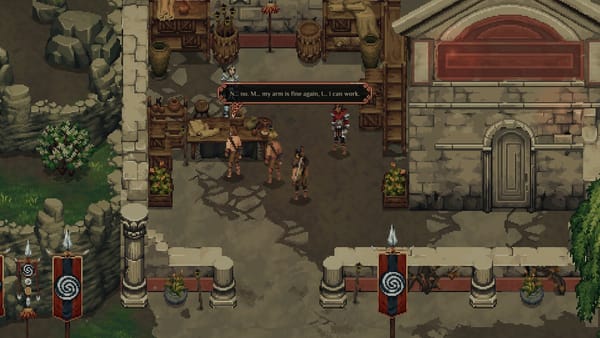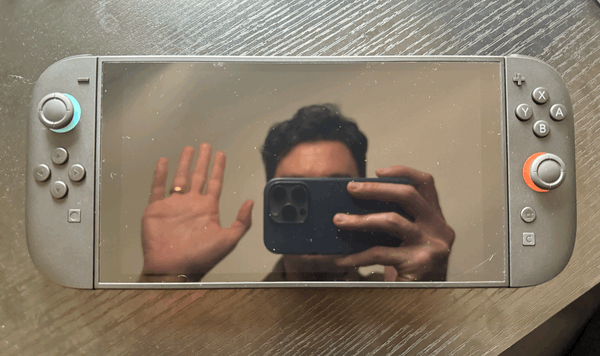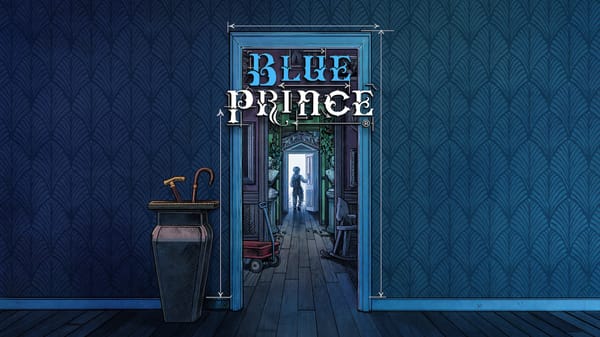Returnal and the unbroken loop
A third-person shooter after Kafka’s own heart
Time loop fiction presents a play between order and chaos. The genre relies on a rule: a fixed period of time is looping. But the fiction also relies on an observer, someone that exists outside the loop and can comment on it. There’s a paradox baked into the form: everything loops, except for the person that does not.
This tension often offers up a path for character development. In Groundhog Day, Bill Murray rehearses each day, aiming for a perfect take that will allow him to break out of the loop, recalling an actor’s experience in rehearsing a role. Similarly, Edge of Tomorrow’s looping action requires Tom Cruise to memorize sci-fi action sequences in order to fight an alien invasion in the same way that a player might memorize the moves of a Soulsborne boss. The idea, usually, is for a character to progress in some meaningful fashion within the loop in order to achieve their escape.
Enter 2021: a good year for time loop gaming with the release of both Deathloop and Returnal. Somewhat famously, Returnal’s critical reception suffered for its missteps at launch: they only offered the option to suspend your cycle and pick it up again six months after the game was released. Playing it in 2022, however, the experience is gentler and more approachable,1 if not still fundamentally disorienting.
You experience the story through the eyes of Selene, an astronaut who crashes on an alien planet, quickly dies, only to awake at the crash site, somehow alive again. She then finds herself, again and again, in pieces: as corpses, scattered around the levels. Some lie facedown near the entrance to an area’s boss room, reaching out toward a pistol that must have failed them. Others are husks, kneeling in supplication toward… something. Additionally, Selene finds recordings from these past loops, which leads us to experience the narrative via Selene observing herself. In the present, she comments with scientific dispassion on the fauna and technology she encounters.
In the found recordings, Selene can be heard cracking under the strain of repeated deaths. In one telling exchange, a recording wonders, “What would I find if I peeled back my skin?” Selene recoils and mutters to herself, “I don’t want to become like her.” In the player’s hands, she fights her way past hostile aliens, parasitic bugs, and renegade robots to reach the origin of a broadcast at the center of a planet, where she ultimately finds her escape.
Returnal is a game that is more than content to show, not tell. After Selene’s rescue, the player is treated to a gorgeous montage that offers snapshots of her subsequent life after she escapes the hostile alien planet. We see her age by watching young, tentative hands on a piano. Then, the same hands, only older, play a more complicated tune with finesse. We see a headstone adorned with Selene’s name as the camera descends into the ground. We presume the game is over. The battle is won, and Selene is laid to rest.
Then, she wakes up on the planet again. It quickly becomes clear that many decades have passed since her first visit, her crash site covered in rust and vines. As she fights her way through subsequent loops, the surface-level narrative starts to crack. The clues that something more was occurring have been there all along. Why is Selene’s childhood house on the planet? Who is the astronaut that pursues her only to vanish? At first, the snatches of narrative offered by the xenoglyphs and audio logs seem to promise answers by way of Selene’s dry narration of her surroundings. But in the second act of the game, Selene’s scientific observation of her alien landscape gives way to increasingly unhinged self-reflection. She begins to find images of herself in the alien archives. The xenoglyphs that once told the story of the alien civilization start to mix with her own backstory. Selene may never have been an astronaut at all, and the entire events of the game might be a form of self-torture after losing her child in a car accident. Can the game be understood fully as a traumatic cycle in her own mind? Or is she really trapped on a planet that is somehow in tune with her psyche?
Yes. And also no!
Returnal’s narrative coheres according to a kind of surrealist logic with clear literary origins in the work of Franz Kafka. In Kafka’s The Trial, the main character, K, is found guilty of a crime and executed for it without ever really learning what it was. Everything feels oppressively freighted with meaning: why are men being whipped in a side room of an office building? What does the indecipherable parable of the law mean? What did K do? The reader never finds out. The text can be read as a kind of bureaucratic nightmare with unknown antagonists, but it resists easy understanding. Texts like The Trial and Returnal feel more like a dream, where meaning is just out of reach and important narrative connections aren’t quite there. Is K guilty? Yes. Did Selene murder her mother literally or metaphorically? Returnal might suggest there isn’t much of a difference.
In one particularly mind-bending moment in Returnal, we learn that Selene herself shot down her own ship, starting the very loop she's trapped inside. In another sequence, we see a child playing the very video game we are playing. Returnal is not overly troubled by the logical challenges these sequences offer. Logic does not operate in the world of Returnal, which is fascinating for the ways it refuses the “Break the loop!”2 mentality of other cyclical fiction. The game starts with that imperative, sure, but it eventually becomes clear that there is no easy way out of a cycle that has no clear rules and no real beginning or end. Finishing Returnal dumps you right back at the beginning of another loop. There might be a final boss to defeat, but doing so offers a cutscene of the car accident that happens before the game even begins. We go nowhere but back to the beginning.
Returnal ends in a mode that recalls the final moments of Finnegans Wake, a novel that famously begins and ends in the middle of a sentence. Deleting Returnal from my system felt like a kind of exorcism, but I couldn't help but feel that I would always be playing it. Maybe I always have been.



